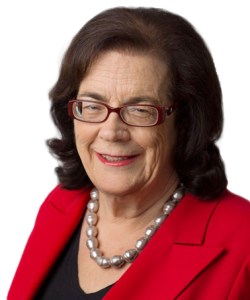AGE and education levels were the most important demographic variables in the Coalition’s loss of support between the 2019 and 2022 elections, according to an Australian National University analysis released on Monday (June 20).

“These two factors were much stronger predictors than sex, country of birth, location, and even household income,” the study found.
The analysis, titled Explaining the 2022 Australian Federal Election Result, authored by Nicholas Biddle and Ian McAllister, is based on an ANUpoll/Comparative Study of Electoral Systems survey of more than 3500 voters.
It compared people’s voting intentions in April and their actual vote in May, as well as how people voted in 2019.
The study found that in general 2022 Coalition voters tended to be older, indigenous, with low education, living outside the capitals and with household income that put them outside the bottom quintile.
Labor voters tended to have higher education levels, lived in the capitals, and had low incomes.
Greens voters tended to be women, young, born in Australia or another English-speaking country, and without a trade qualification.
Biddle said more than one in three voters under 55 (34.9 per cent) who voted Coalition in 2019 voted for someone else this year. But only about one in five (21.1 per cent) aged 55 and over did so.
The Coalition also lost more votes among the better educated, he said. Some 31 per cent of those who had completed year 12 and voted for the government in 2019 changed their vote in 2022. In contrast only 14.8 per cent of Coalition voters who had not finished year 12 changed their vote.
“Education, and particularly high school education, really matters when it comes to understanding this election result,” Biddle said.
The Coalition also lost more voters in capital cities compared to outside the capitals.
The analysis said the results suggested the change in government was mainly driven by “younger, urban and more well educated” Coalition voters moving away from the government, while Labor was able to maintain its support across most demographic groups, apart from those outside capital cities.
The study found women were less likely to vote for the Coalition compared to men. But the largest gender difference related to the Greens with 22.5 per cent of women voting for them but only 16.4 per cent of men.
Some 13.6 per cent of voters made up their minds how to vote on election day.
Most people voted in May the way they had indicated in April that they would – but more than a fifth (21.9 per cent) changed their mind in the campaign. The most common reason people gave was because their views about the local candidate changed.
The data on those who voted for candidates and parties other than the Coalition, Labor and the Greens has not been fully analysed yet, so there is no information specifically on the “teal” vote.
The survey found voter volatility in 2022 was similar to 2019. “A similar proportion of Australians voted for a different party across those two elections as between the 2016 and 2019 election, and there was a remarkably similar proportion across the two elections of Australians who voted for a different party to that which they had intended to vote in the last survey prior to the election.”
The proportion of people splitting their lower house and Senate vote was low in both elections but appeared to have declined in 2022.
The survey also found a strong post-election increase in people’s satisfaction with the direction the country is going in, from 62.4 per cent in April to 73.3 per cent in May. Biddle said this was one of the highest levels of satisfaction since the 2019-20 bushfires and the pandemic’s start.
But satisfaction did vary according to how people had voted. While satisfaction jumped among Labor and Green voters it went down among Coalition voters.
Most people thought the election had been conducted fairly.![]()
Michelle Grattan, Professorial Fellow, University of Canberra. This article is republished from The Conversation under a Creative Commons license.
Who can be trusted?
In a world of spin and confusion, there’s never been a more important time to support independent journalism in Canberra.
If you trust our work online and want to enforce the power of independent voices, I invite you to make a small contribution.
Every dollar of support is invested back into our journalism to help keep citynews.com.au strong and free.
Thank you,
Ian Meikle, editor




Leave a Reply